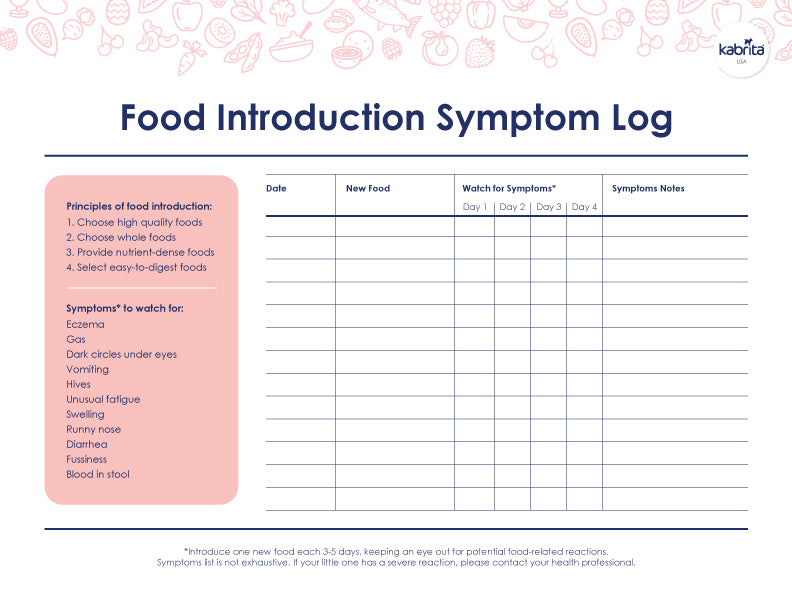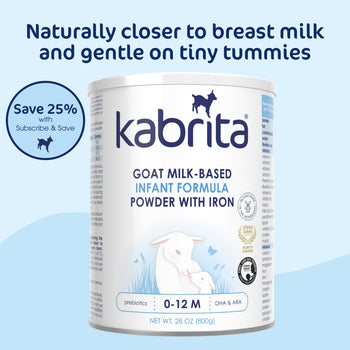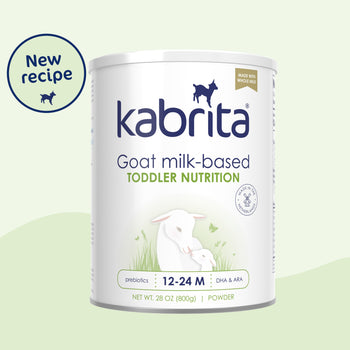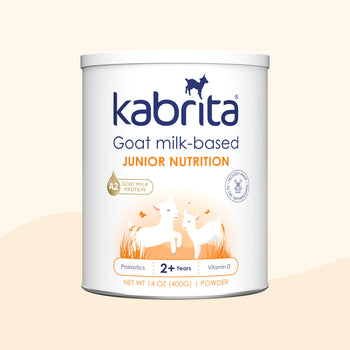Easy to Digest Foods as First Solid Foods for Baby

While introducing solid food is a fun and exciting time for families, it may also come with questions and uncertainty. To help make the food introduction process as easy as possible, we’ve identified several core principles to help guide families. Read on to learn about one of these core principles, Easy to Digest, and how it applies to the introduction of baby’s First Foods.
Starting Solids with Easy to Digest Foods Help Your Little One to Thrive
Easy to digest first foods are ideal first foods because they have been mindfully introduced and do not provoke a reaction. Some examples of common easy to digest first foods may include avocado, sweet potato, apple, carrot, banana, and goat’s milk*. Of course, every child is unique so easy to digest foods may differ. Finding easy to digest foods for your little one is all about timing. Every time you introduce a new food, it is an exciting experience for your baby. Ensure all foods are soft, well-cooked, or pureed to prevent choking.
Steps to Starting New Baby Foods
- Introduce only one new food at a time and wait three to five days before moving on to the next food.
- Keep an eye out for possible food reactions and remember that some symptoms may take up to 72 hours to appear.
- Once food has been successfully introduced, it can stay in the food rotation while continuing with other new foods.
Watching for Reactions
You can use Kabrita's 'Food Introduction Symptom Log' below to track your baby’s new foods and make note of possible food-related reactions. A new onset symptom, or a worsening of a symptom your child already experiences, may be associated with a food trigger. If your little one experiences a mild symptom, it’s best to remove the possible offending food until symptoms clear. Once symptoms have resolved, you may try the same food again. If the reaction recurs, contact your baby’s health professional, as symptoms may indicate a food allergy or sensitivity. If your baby has a severe reaction, it’s always best to contact your baby’s health professional immediately. Foods that do not provoke any reaction and are well tolerated by your little one may be deemed ‘easy to digest’ and can become a part of their regular diet.

Introducing Potentially Allergenic Foods
Some of the more common potentially allergenic foods include peanuts, cow milk, egg, tree nuts, wheat, soy, fish, and shellfish. If your baby is between 4-6 months and has tolerated a few low allergenic foods well (such as sweet potato, carrot, and banana), you can move forward with introducing potentially allergenic foods.
According to the American Academy of Allergy, Asthma, and Immunology, it's best not to wait to introduce these foods as delaying introduction may increase a baby’s risk of developing allergies. However, if your little one has an established food allergy or suspected food allergy, mild to moderate eczema despite treatment, or a sibling with peanut allergy, it’s best to consult with your baby’s health professional prior to the introduction of potentially allergenic foods.
Kabrita Goat Milk Foods are Easy to Digest
Goat milk protein is naturally easier to digest than cow milk protein, which may make goat milk foods an ideal first food for your little one*. Our Snack Puffs with Goat Cheese are a great option for food introduction and our Goat Milk Toddler Formula may be a nutritious cow milk alternative for toddlers.
First Foods is a series of blogs looking into several core principles to help guide families when introducing new foods.
*Not suitable for children with cow milk protein allergy



